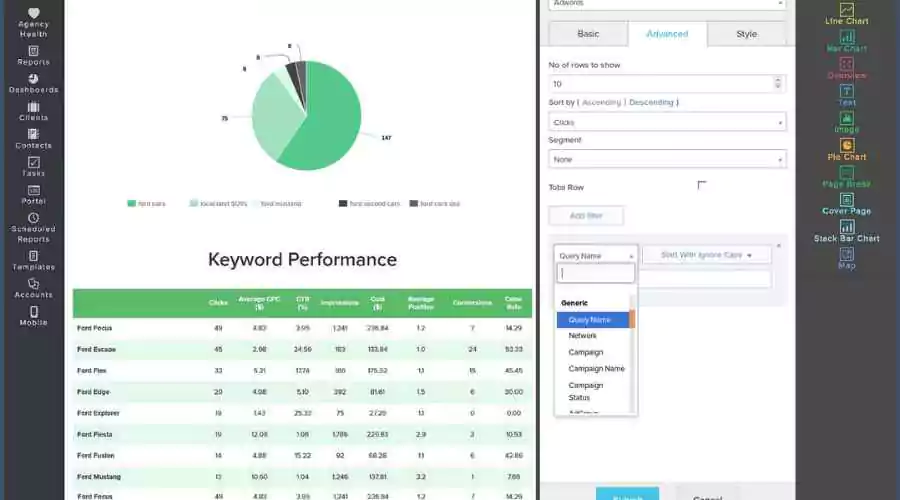Keywords ecommerce analytics is the process of analyzing data related to online shopping and transactions. The data is collected from various sources such as websites, mobile apps, social media platforms, and other online channels. Keywords play a critical role in keywords ecommerce analytics as they help businesses to understand customer behavior, identify trends, and optimize their online presence. Semrush offers a range of keywords ecommerce analytics features that help businesses to monitor their online sales performance. By integrating with popular e-commerce platforms such as Shopify, WooCommerce, and Magento, Semrush can provide businesses with a range of insights, including revenue, conversion rate, and average order value. This information can be used to identify areas where the business is performing well and areas where improvements can be made.
Importance of Keywords Ecommerce Analytics
In today’s digital world, e-commerce has become an increasingly important aspect of business. E-commerce platforms enable businesses to reach a wider audience and offer their products and services to customers around the globe. With the increasing competition, it is essential to use analytics to understand customers’ behavior and preferences. Keywords are a critical component of e-commerce analytics, as they provide valuable insights into the search terms that customers use to find products and services online.
In the context of e-commerce, keywords are the search terms that customers use to find products and services online. Keywords play a critical role in e-commerce analytics, as they provide valuable insights into customer behavior and preferences. By analyzing the keywords that customers use to find products and services, businesses can gain a better understanding of their target audience and optimize their online presence to meet their needs.
1. Identifying Relevant Keywords

Identifying Relevant Keywords | Oglooks
To leverage the power of keywords ecommerce analytics, it is essential to identify the relevant keywords that customers use to find products and services online. There are several ways to identify relevant keywords, including:
- Keyword Research: Keyword research involves analyzing search data to identify the keywords that customers use to find products and services online. This data can be obtained from search engines, social media platforms, and other online sources.
- Competitor Analysis: Competitor analysis involves analyzing the keywords that competitors are targeting to gain insights into the keywords that are most relevant to the business.
- Customer Feedback: Customer feedback can also be used to identify relevant keywords. By analyzing customer feedback, businesses can gain insights into the words and phrases that customers use to describe their products and services.
2. Using Keywords to Optimize Online Presence
Once relevant keywords have been identified, businesses can leverage them to optimize their online presence. Some ways that businesses can use keywords to optimize their online presence include:
- On-Page Optimization: On-page optimization involves optimizing website content and structure to improve search engine rankings. By including relevant keywords in website content and structure, businesses can improve their chances of appearing in search engine results for those keywords.
- Pay-Per-Click Advertising: Pay-per-click advertising involves placing ads on search engine results pages and other online platforms. By targeting relevant keywords, businesses can increase the visibility of their ads to customers searching for those keywords.
- Content Creation: Content creation involves creating blog posts, articles, and other types of content that are optimized for specific keywords. By creating content that is optimized for relevant keywords, businesses can improve their chances of appearing in search engine results for those keywords.
3. Measuring Keyword Performance

Measuring Keyword Performance | Oglooks
Measuring the performance of keywords is essential to e-commerce analytics. By measuring the performance of keywords, businesses can gain insights into customer behavior and preferences and optimize their online presence to meet their needs. Some metrics that can be used to measure keyword performance include:
- Search Volume: Search volume measures the number of times a keyword is searched for on search engines.
- Click-Through Rate: Click-through rate measures the percentage of users who click on a website link after seeing it in search engine results.
- Conversion Rate: Conversion rate measures the percentage of users who take a desired action, such as making a purchase or filling out a form, after clicking on a website link.
Popular Keywords Ecommerce Analytics
There are several popular keywords ecommerce analytics that businesses use to understand customer behavior and optimize their online presence. Some of these keywords include:
Conversion Rate
Conversion rate is the percentage of visitors to a website who complete a desired action such as making a purchase or filling out a form. By analyzing conversion rates, businesses can identify areas of their website that need improvement and optimize their pages to increase conversions.
Click-Through Rate (CTR)
Click-through rate is the percentage of people who click on a link in an advertisement or email. By analyzing CTR, businesses can identify the most effective marketing channels and optimize their marketing campaigns accordingly.
Search Volume
Search volume is the number of times a specific keyword is searched on a search engine. By analyzing search volume, businesses can identify popular keywords and optimize their website and product pages to rank higher in search engine results.
Average Order Value (AOV)
Average order value is the average amount spent by a customer per transaction. By analyzing AOV, businesses can identify ways to increase the value of each transaction, such as offering upsells and cross-sells.
Conclusion
In conclusion, keyword research is an essential aspect of the keywords ecommerce analytics, and Semrush provides a range of features to help businesses optimize their online performance. By using Semrush’s powerful keyword research, site audit, keyword tracking, and e-commerce analytics features, businesses can gain a deeper understanding of their online performance and make data-driven decisions to improve their online presence. With the increasing importance of keywords ecommerce, Semrush is a valuable tool for businesses looking to stay ahead of the competition and succeed online. Moreover, you can visit the official OGlooks website to know the top ecommerce keywords and learn more about the keywords for ecommerce.





